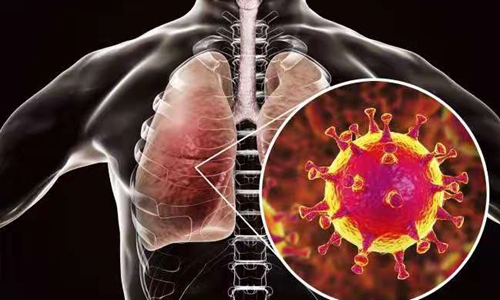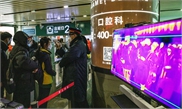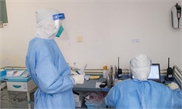
Photo: VCG
The World Health Organization (WHO) declared the novel coronavirus a global public health emergency (PHEIC), emphasizing that it was not a vote of no confidence in China. Chinese analysts said there is no need to overreact to the declaration while fighting the virus, although it could add extra pressure to the world's second-largest economy.
Over the past few weeks, we have witnessed the emergence of a previously unknown pathogen, which has escalated into an outbreak, and which has been met by an unprecedented response, said WHO Director-General Tedros Adhanom Ghebreyesus at a press conference in Geneva, Switzerland on Thursday.
At least 98 novel coronavirus cases have been reported in 18 countries, including eight human-to-human transmissions in Germany, Japan, Vietnam, and the US. The majority of the cases outside of China involved people who had traveled to Wuhan, or were in contact with someone who had visited the city, said Ghebreyesus.
After considering multiple factors, WHO designated the coronavirus as a PHEIC. However, WHO continues to have confidence in China's ability to control the outbreak.
Chinese analysts said it was not necessary to overreact or interpret the news as a hostile attitude toward China from the global community. The shared priority is to prevent the deadly virus from spreading across the globe.
"Indeed, it may give extra pressure to China, with both economic and political implications," Shen Yi, director at the Research Center for Cyberspace Governance of Fudan University, told the Global Times.
"But it's up to how China continues fighting the epidemic in order to help its economy recovered," Shen said, noting that the WHO decision has little influence on how other countries handle economic ties with China amid the pneumonia outbreak.
Serious events that endanger international health are considered to be PHEIC as it constitutes a risk to other countries through the spread of the disease, which is also "serious, unusual, or unexpected," and carries implications for public health beyond the affected country's borders or requires immediate international action, according to WHO.
A PHEIC declaration is rare, as only five have been made in the past decade including the H1N1 virus that caused an influenza pandemic in 2009, West Africa's Ebola, polio in 2014, the Zika virus in 2016, and the ongoing Ebola outbreak in the Democratic Republic of Congo that started in 2019.
Concerns have emerged over whether other countries would close their borders or impose trade and travel restrictions, which has happened in the past when a PHEIC is declared.
There is no reason for measures that unnecessarily interfere with international travel and trade, WHO said, calling for all countries to implement decisions that are evidence-based and consistent after it declares novel coronavirus a global public health emergency.
According to the International Health Regulations (IHR), if the WHO declares a PHEIC, the director-general shall issue temporary recommendations including health measures regarding people, baggage, cargo, containers, conveyances, goods, and postal parcels to prevent or reduce the spread of the disease and avoid unnecessary interference with international traffic.
However, temporary recommendations are non-binding advisories issued by WHO and are on a time-limited, risk-specific basis, according to IHR.
When WHO declared the Ebola outbreak in the Democratic Republic of Congo as a PHEIC, the organization emphasized it was essential to avoid the punitive economic consequences of travel and trade restrictions on affected communities, in a statement published on its website in July 2019.
Under the IHR, countries implementing additional health measures going beyond what WHO recommends will be obliged to send public health rationale and justification within 48 hours of implementation for WHO to review, said WHO spokesman Tarik Jasarevic to the Global Times on Thursday.
WHO is obliged to share the information about measures and the justification received with other countries involved, Jasarevic said, noting that countries are asked to provide public health justification for any travel or trade measures that are not scientifically based, such as the refusal of entry based on suspect cases or unaffected persons to affected areas.
Yang Gonghuan, former director of tobacco control at the Chinese Center for Disease Control and Prevention, told the Global Times that WHO would depend on the situation of the epidemic rather than targeting a specific place or for political purposes.
In response to concerns that a PHEIC would "hold China's breath," Yang said such thinking is "incorrect and unreasonable."
"WHO's decision and measures are based on the perspective of global disease prevention," Yang said.
However, the PHEIC label could frighten contracting countries to the point that they could disobey WHO recommendations and impose more stringent limits on travel and trade with the country where the virus originated, which would create significant economic losses.
During the H1N1 pandemic in 2009, WHO stressed the virus could not spread through pork products and yet over 40 countries banned pork imports from H1N1-affected nations, according to media reports.
Contracting states have agreed to follow WHO guidelines, and they should act within the forum of the organization, Yang noted.





